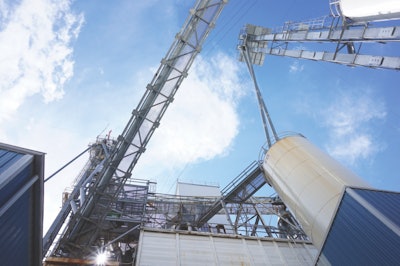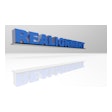
Any feed equipment manufacturer that exports internationally should be involved in the development of safety standards, experts say.
Representatives from the American Feed Industry Association (AFIA) and the American Society of Agricultural and Biological Engineers (ASABE) have made their case for why feed equipment manufacturing companies should get involved in the development of ISO/TC 293 standards for the industry.
Gary Huddleston, AFIA’s director of feed manufacturing and regulatory affairs, and Scott Cederquist, ASABE’s director of standards and technical spoke January 28 at the 2020 International Production & Processing Expo (IPPE) in Atlanta.
ISO/TC 293, created in China in 2014, aims to standardize safety for feed machines, processing systems and production lines, “including safety, hygienic requirements, environmental protection and specific technical requirements of feed machinery used in feed processing mills.” So far, there are 13 voting countries and 13 observing countries.
Huddleston and Cederquist said any feed equipment manufacturer that exports to other countries should be involved in the development of the standards for the benefit of all countries. Having standards eliminates the need to compare national or regional standards for different requirements.
“We need your voice to represent your industry because … if you have interest in this and work with this equipment, you have information and you have knowledge that can now be passed on to these standards,” Cederquist said.
According to the U.S. Department of Commerce, standards and technical regulations affect 93% of global exports, so they affect most businesses.
“Think of standards as the language of how we do business. So, we want … a level playing field as far as the basic standards,” Huddleston said. “The more experts that we’ve got involved in it across our country and across other countries, the better the standards are going to be, and that’s our goal.”
Why get involved?
Huddleston had several reasons that feed equipment manufacturers should want to be involved in development of standards.
“If you’re in a feed equipment manufacturing company, you should know these standards are coming and this is your opportunity to get in on the ground floor, help participate in the development of these standards and help make sure that these standards are things that (your) company can live with, you know about it and you can have some input in the development of the documents,” he said. “You help to secure the future of our industry by participating in this work.”
He also said involvement will improve safety all over the world, as well as position companies and their employees positively in the global industry.
“It’s a good way to benchmark your company’s position in the global marketplace as well because you’re in on the ground level,” he said. “We’ll be developing these standards to improve the safety across the world with feed manufacturing equipment, and you’ll have a good opportunity to network with peers across the globe.”
It’s better for companies to be involved early so they can have input and understand what will be expected of them later.
“We don’t want you to be surprised by standards that get created and then all of sudden affect the design and the manufacture of your equipment that you didn’t have any input on,” Huddleston said.
Cederquist added that companies’ awareness and involvement in development of the standards will help them with contracts from their clients.
“What we want to do in the U.S. is make sure they’re aware of it because it could very well show up in a contract,” he said.
Additionally, knowledge can protect companies in the unfortunate case of a safety issue.
“Heaven forbid, if anyone were to get hurt with the equipment that you designed and the legal team on the other side comes in and says, ‘Were you aware of this ISO standard?’ If you say no … it could be dangerous,” Cederquist said.
Companies that are interested in getting involved with ISO/TC 293 should contact AFIA or ASABE.












